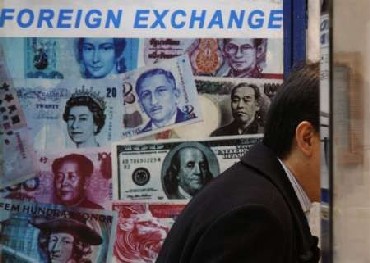 | « Back to article | Print this article |
How to remit money abroad
Ever been in a situation where a relative in a foreign country needed money urgently? As those who have been abroad for treatments or have children studying in foreign universities will tell you, it is easier to receive than to send money abroad.
"While you can approach money transfer agencies apart from banks to receive money, only a bank can help you send outward remittances," says Ravi Menon, head of foreign exchange at Cox and Kings.
Even then, not all branches of a bank are authorised for foreign exchange transactions.
Under the Reserve Bank of India's Liberalised Remittance Scheme (LRS), individuals can acquire and hold immovable property, shares, debt instruments or any other assets outside India.
Click NEXT to read more...
How to remit money abroad
They could also hold foreign currency accounts with banks outside India for carrying out transactions permitted under LRS.
However, the maximum amount one can remit abroad for the above purpose is $200,000 (Rs 90 lakh) a year.
Again there are annual limits on money remitted for business ($25,000), tourism ($10,000) and employment ($100,000) purposes. For smaller value remittances like gifts or donations, the amount is limited to $5,000.
RBI has also put restrictions on remitting money for certain countries and purchases such as foreign currency convertible bonds issued by Indian companies abroad and foreign exchange trading.
Click NEXT to read more...
How to remit money abroad
Transfers
Currently, anyone wanting to send money abroad has only two ways to do so. The most common is the SWIFT (Society for Worldwide Interbank Financial Telecommunication) wire transfer option.
It is an offline facility available with banks which have a tie-up with banks abroad. Axis, ICICI and Canara are among those providing it.
While filing the form, one needs to mention the bank's SWIFT code, an alphanumeric one identifying the bank.
The amount will be credited to the beneficiary's account in two to three days. You will be charged Rs 500-800 for the transfer and this includes bank charges and the currency conversion charge.
Click NEXT to read more...
How to remit money abroad
If your bank does not provide a SWIFT facility, you need to make a demand draft (DD) from there and give it to a bank that does.
However, this costs more, since you pay for the DD issuance along with SWIFT charges.
The other method, which all banks offer, is the Foreign Currency Demand Draft. It is available in all major currencies.
However, the glitch is that it will take time for the money to get credited, about 10-12 days. The charge for each transaction is Rs 200 to Rs 500.
Click NEXT to read more...
How to remit money abroad
So, if you urgently need to send money abroad, you should do so via wire transfer. Transfering funds through net banking is another option but not many banks give this facility.
Also, once the money is transferred, the beneficiary will have to withdraw the amount and get it converted.
You should look at the taxation system of the country you are sending money to. There are certain transactions not covered by the LRS or small value remittances where you will need a chartered accountant's certificate.
For instance, if you required money for any services availed from abroad such as consultancy charges, legal fees or training fees, you need a chartered accountant's certificate, along with proof of identity.
Click NEXT to read more...





